
Total Recall!
It’s not, technically, impossible … Those aren’t heads of lettuce … And these Canadians don’t mind the tariffs.
Arizona lawmakers came to a bipartisan compromise last week to narrowly avert disaster by funding the Parents as Paid Caregivers program, which thousands of families of disabled kids rely upon.
But Gov. Katie Hobbs’ signature on the bill to fund the program hasn’t stopped parents and her Democratic allies from targeting a handful of Republicans who initially dragged their feet on solving the crisis.
The recall campaign against Republican Reps. David Livingston, Matt Gress, Michael Carbone and House Speaker Steve Montenegro is just getting started.
The recall effort is hosting its first major action at the Capitol tomorrow, handing out petitions for volunteers and hitting the streets in each district to begin gathering the minimum 110,000 signatures across four legislative districts they’ll need to spark four recalls.
And while recalls are almost impossibly difficult to pull off, there’s reason to believe this recall is more than just a half-baked plan.
To force a recall, organizers have a tight, four-month window to collect a ton of signatures from registered voters in each of the lawmakers’ districts. To spark a recall against Gress, for example, organizers will need about 35,000 valid signatures from voters in his Paradise Valley-based district.1 To put that number in perspective, Gress needed less than 600 valid signatures to qualify for the ballot in his district last year.
And that’s just to force the recall to happen. Then organizers still need to recruit candidates who can actually beat Gress and the others.
Because recalls are such massive undertakings — and because the people who file them usually don’t have the time, resources, organization or money to actually be successful — we usually don’t pay much attention to recall attempts.
But this attempted recall against the quartet of lawmakers has a not-so-secret weapon: Andy Gaona, a longtime Democratic lawyer and Hobbs ally.
He’s the brother of Will Gaona, Hobbs’ deputy chief of staff, and his involvement, as several Republicans have pointed out, almost certainly means the effort has Hobbs’ support, at least implicitly. And with Hobbs’ support comes money, organization, time and resources.
The organization spearheading the recall, “Reclaiming our Arizona Representation” or R.O.A.R., says it’s a bipartisan coalition of parents, and that no politicians are involved.
“Our ROAR petition district leaders are all parents/caregivers of disabled loved ones, and are the ones who filed the paperwork for the recalls. They have zero affiliation with the governor,” the group wrote on its social media feed. “… This is not democrat vs republican, red vs blue …”
And chances are, even if the recall was successful, it wouldn’t result in the Republicans being replaced by Democrats at the Capitol.
Most of the politicians they’re targeting come from solidly conservative districts (Gress is the exception, representing one of the state’s few competitive districts). But recall elections create a unique dynamic where two Republicans can run against each other in an election that is open to all of the district’s voters. It essentially functions as an open primary.
That’s how voters got rid of Russell Pearce, a former Senate president and author of SB1070, back in 2011. Pearce represented a heavily Republican Mesa district that would have never elected a Democrat. So recall organizers drafted Republican Jerry Lewis to run against Pearce instead. Lewis was a moderate, business-backed Republican who picked off support from that wing of his party, not to mention every Democrat who opposed Pearce. Lewis won with 54% of the vote.
But while Pearce became the nationally known face of Arizona racial profiling against Latinos, it might be more difficult to make Gress, Livingston, Carbone and Montenegro the face of disability funding.
All four ultimately voted for the proposal praised by parents, Democrats and the governor.
So why recall these four, rather than the dozen Republicans who actually voted against the proposal?
Well, organizers argue that each had some role in the political gamesmanship leading up to the bill’s eventual approval.
“Livingston didn’t just stall funding — he used procedural tricks to silence bipartisan solutions. His actions caused irreparable harm to families depending on life-sustaining disability services.”
“Gress positioned himself as a moderate but failed to act when it counted. He helped pass a version of the bill that played politics with healthcare and put thousands of Arizonans at risk.”
“Montenegro had the power to allow debate and bring balance. Instead, he used it to deepen the crisis and push partisan control over life-and-death services.”
“Carbone wasn’t acting in good faith — he was added (to the House Appropriations Committee ahead of a vote) to secure a predetermined outcome. His vote helped dismantle existing systems that protect the most vulnerable.”
But getting people to sign recall petitions will be a challenge. People are generally far more willing to sign a petition to get someone on the ballot than to remove someone and none of these lawmakers have reached Pearce-level infamy.
Not to mention that recall organizers must collect all signatures in person and can’t use the online E-Qualification system, as candidates can.
And these days, signature gathering firms generally charge more than $10 per signature gathered. That means in lieu of an army of volunteers who are capable of gathering about 2,000 signatures per day through the summer, the campaign will need about $2 million just to spark the recalls.2
For all those reasons and more, we still put any recall in the “longshot” category.
But we’ll see tomorrow — when organizers kick off their first day of action at the Capitol — what kind of support the grassroots effort has.
Maybe they brought lettuce: An Arizona Department of Agriculture inspector was arrested — in uniform — for allegedly smuggling humans across the border, AZFamily’s Ben Bradley and Dennis Welch report. And the episode is threatening to derail the pending confirmation of Gov. Katie Hobbs’ choice to lead the agency. Two migrants allegedly paid a combined $20,000 to have inspector Joshua Castro help smuggle them across the border near Nogales, per U.S. Border Patrol. Now, Republican Sen. Jake Hoffman is threatening to shut down Hobbs’ nomination of Paul Brierly to lead the agency. Brierly is the acting director of the department and he’s awaiting a vote from the full Senate to be confirmed.
“It’s no wonder Hobbs vetoes every piece of meaningful border security legislation when on her watch her own state employee is being arrested and prosecuted for the human smuggling of illegal aliens,” Hoffman told AZFamily. “As for Brierly, the Nominations Committee and Senate Republicans had serious doubts about him already, this profound lack of management certainly won’t strengthen his case before the full senate."
Last-minute lifeline: Families who rely on state funding to take care of their children with developmental disabilities are breathing sighs of relief after Hobbs signed into law a bipartisan compromise to fund the Division of Developmental Disabilities through June 30, the Phoenix New Times’ Morgan Fischer writes. House lawmakers struck a last-minute deal last week to come up with $122 million without slashing housing programs or downsizing the disability program, and state senators sent it to Hobbs’ desk on Thursday. Republicans and Hobbs still have to negotiate the program’s future within the budget for the next fiscal year.
“I’m just happy that I can keep my son home and his nursing is not going to be affected,” said a mother who uses the funding to care for her 2-year-old son.
Money talks: Some independent voters say they regret voting for Trump after his tariff policies caused mass economic panic, per the Washington Post. Arizona nursing school student Jake Ferrin-Brown told the Post he’s worried about a recession, but doesn’t yet regret his vote for Trump. Wisconsin retiree Faye Tietz, who didn’t vote in the 2024 election, wishes she had stayed in Arizona for the cheaper prices, and now, she’s worried about her Social Security benefits.
You won’t regret supporting local, independent journalism at a time when media independence is in Trump’s crosshairs.
The college experience: Arizona lawmakers are advancing a bill to make college “encampments” illegal in response to the pro-Palestinian protests on Arizona’s campuses saw last year, Capitol scribe Howie Fischer reports. Democratic Rep. Alma Hernandez says she sponsored HB2880 because Jewish students felt harassed after last year’s protests, but others, like Democratic Sen. Analise Ortiz, point to vague language in the bill that could lead to free speech violations. Meanwhile, the U.S. government reversed its move to terminate the legal status of more than 1,200 international college students, which caused irreversible damage to many who stopped attending class or fled the country, per the Associated Press. Eight Arizona State University students had their visas revoked under the policy, and a U.S. District Court judge ordered ICE to clarify its policy on arresting international students.
“It seems like with this administration, there’s a new world order every single day,” U.S. District Judge Jeffrey S. White said. “It’s like whack-a-mole.”
Turning the desert into a deathtrap: Migrant advocates in southern Arizona warn that Trump’s plans for a military takeover at the southern border will funnel migrants to dangerous crossing points, and in Arizona, lead border-crossers to a treacherous 62-mile stretch of Tohono O’Odham Nation land in Pima County, Cronkite News’ Emma Paterson reports. The area is already a hotspot for human trafficking and crossing-related deaths. Plus, environmentalists say the military presence could further harm the Sonoran Desert’s endangered animal and plant species.
Preserving history: Phoenix’s historic homeowners are worried that a new law that forces cities to allow multi-unit housing around their central business districts won’t result in affordable housing as lawmakers intended, per the Republic’s Catherine Reagor. Neighborhood associations say houses around the central business district are selling for more than $1 million each, and that the law, which will go into effect next January, will compromise their historic homes and the discount on property taxes they get from them. Meanwhile, freelance writer Rashaad Thomas explains in the Arizona Mirror why Phoenix is the ninth-most gentrified city in the U.S., and why Black and Brown residents are being forced into South Phoenix amid the persistent impacts of Jim Crow laws and redlining.
Pick your battles: A judge denied a request from the hemp industry to block implementation of Arizona Attorney General Kris Mayes’ new policy forcing businesses to get a cannabis license to sell THC-derivative products, per KJZZ’s Greg Hahne and Matthew Casey. Businesses like smoke shops and Total Wine have been selling hemp-based products that are legal under federal law, but the judge didn’t buy the hemp industry’s argument that the federal loophole should supersede Mayes’ opinion. The full court hearing is scheduled for next month. Meanwhile, Peoria Mayor Jason Beck is beefing with Mayes for not investigating his former employee, who left to work with the AG’s office, the Republic’s Shawn Raymundo and Stacey Barchenger report. Beck is suing that employee, Vanessa Hickman, for allegedly wrongfully accepting $139,000 in severance money. Mayes called Beck an “extremist MAGA politician” who wants to “score political points.”
Arizona’s politicians have put the Department of Public Safety at the forefront of their border-enforcement plans, like grouping it into a border task force in Gov. Katie Hobbs’ Operation Desert Guardian.
So we’re so glad to see the Phoenix New Times highlight the other important work DPS does, like investigating cases of “fowl play,” as Benjamin Leatherman writes.
Troopers helped escort a family of Canada geese walking across the westbound Loop 202 Freeway in Mesa last week, and they posted the video online for us all to enjoy. It happens more often than you might expect, per DPS, which says troopers encounter animals in need of police assistance “at least twice, possibly three times a week.”
One Facebook commenter asked: “What’s the Canadian Air Force doing in AZ?”
The number of signatures needed to spark a recall is equal to 25% of all the votes cast for that office in the last election. So it varies by district. Organizers will need the fewest number of signatures to force a recall against Carbone — just about 22,000.
That math is based on the roughly quarter-million signatures organizers will realistically need to collect to have a thick enough cushion to withstand legal challenges.


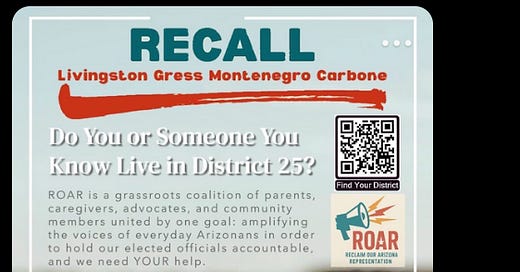

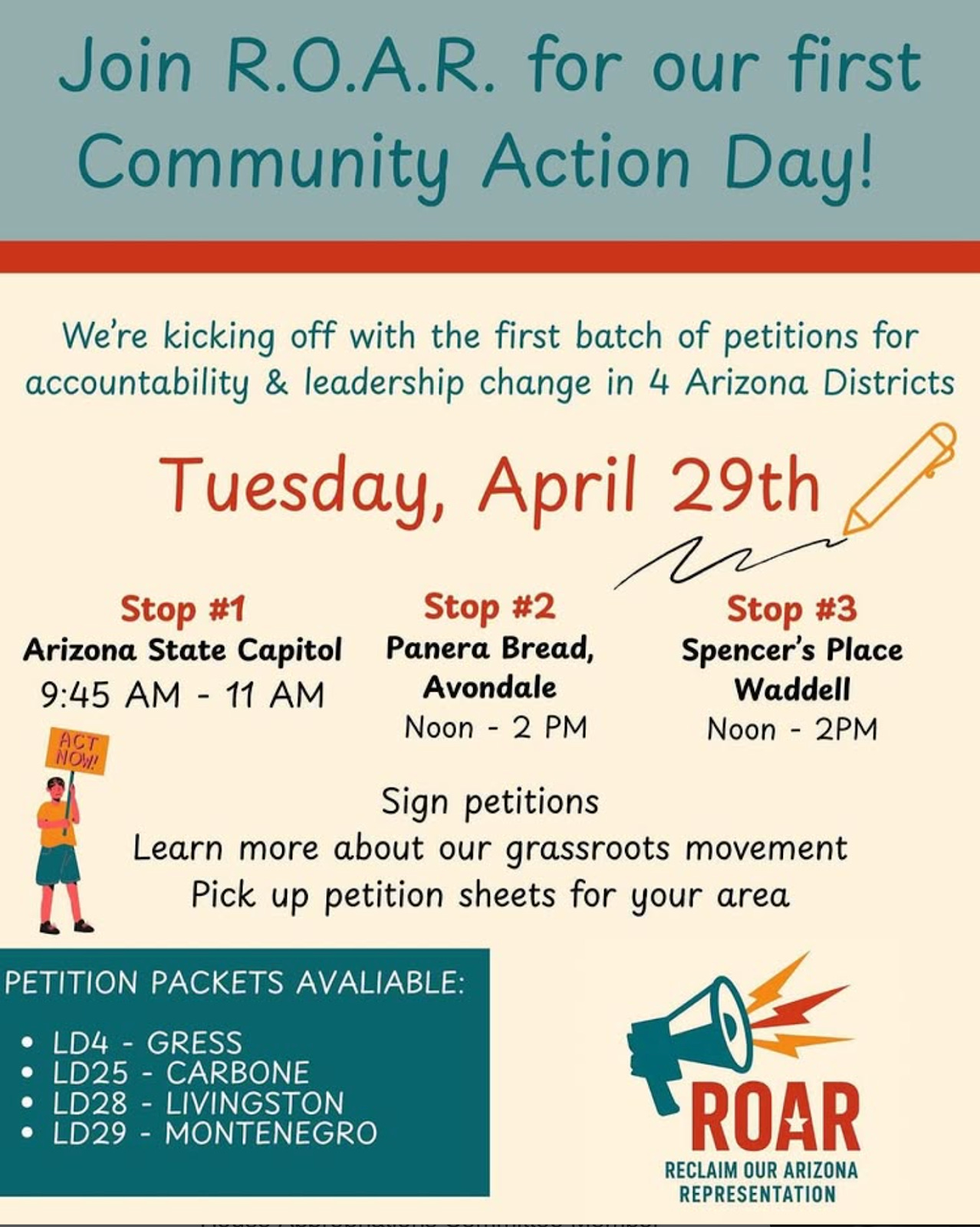

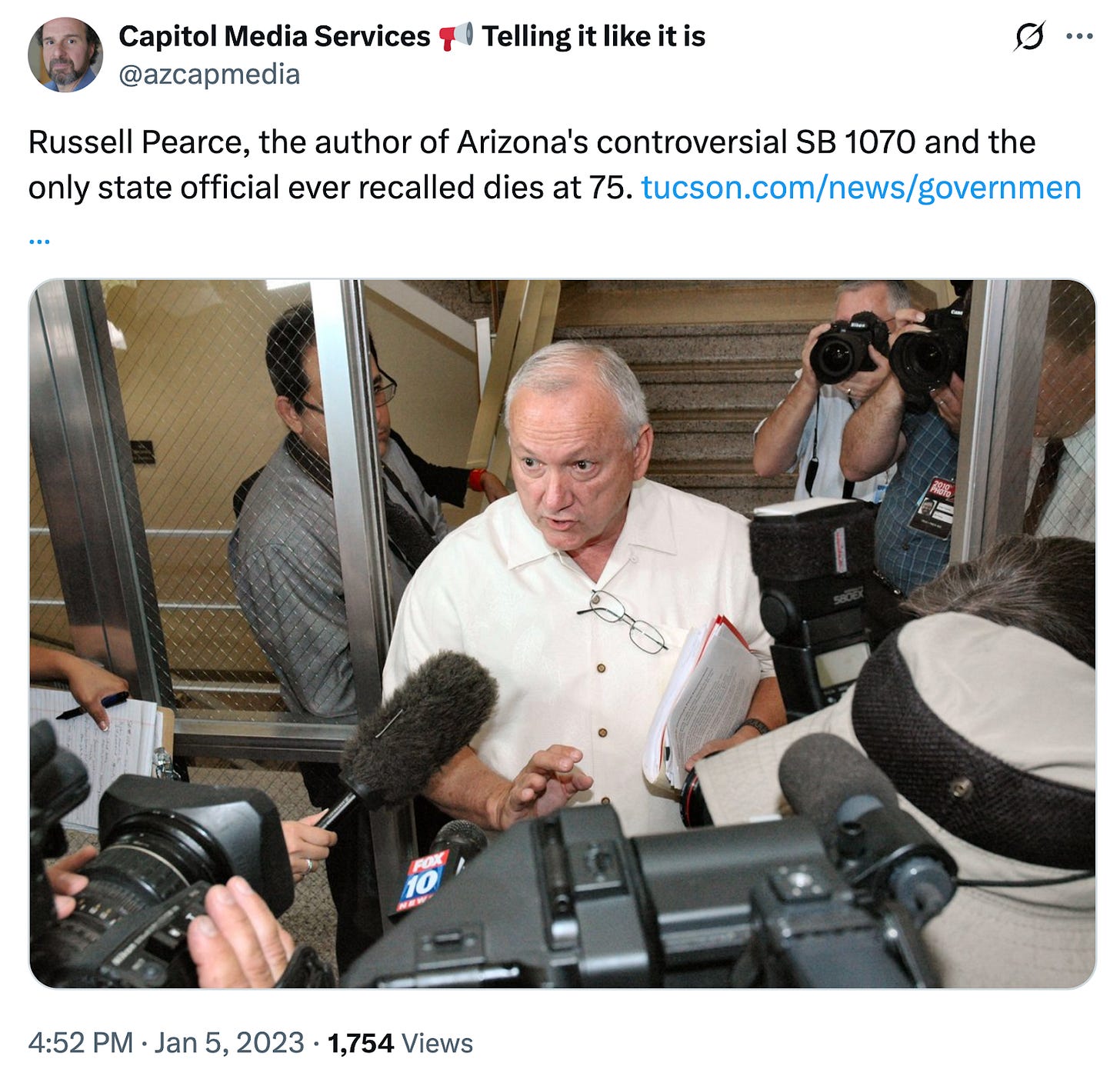
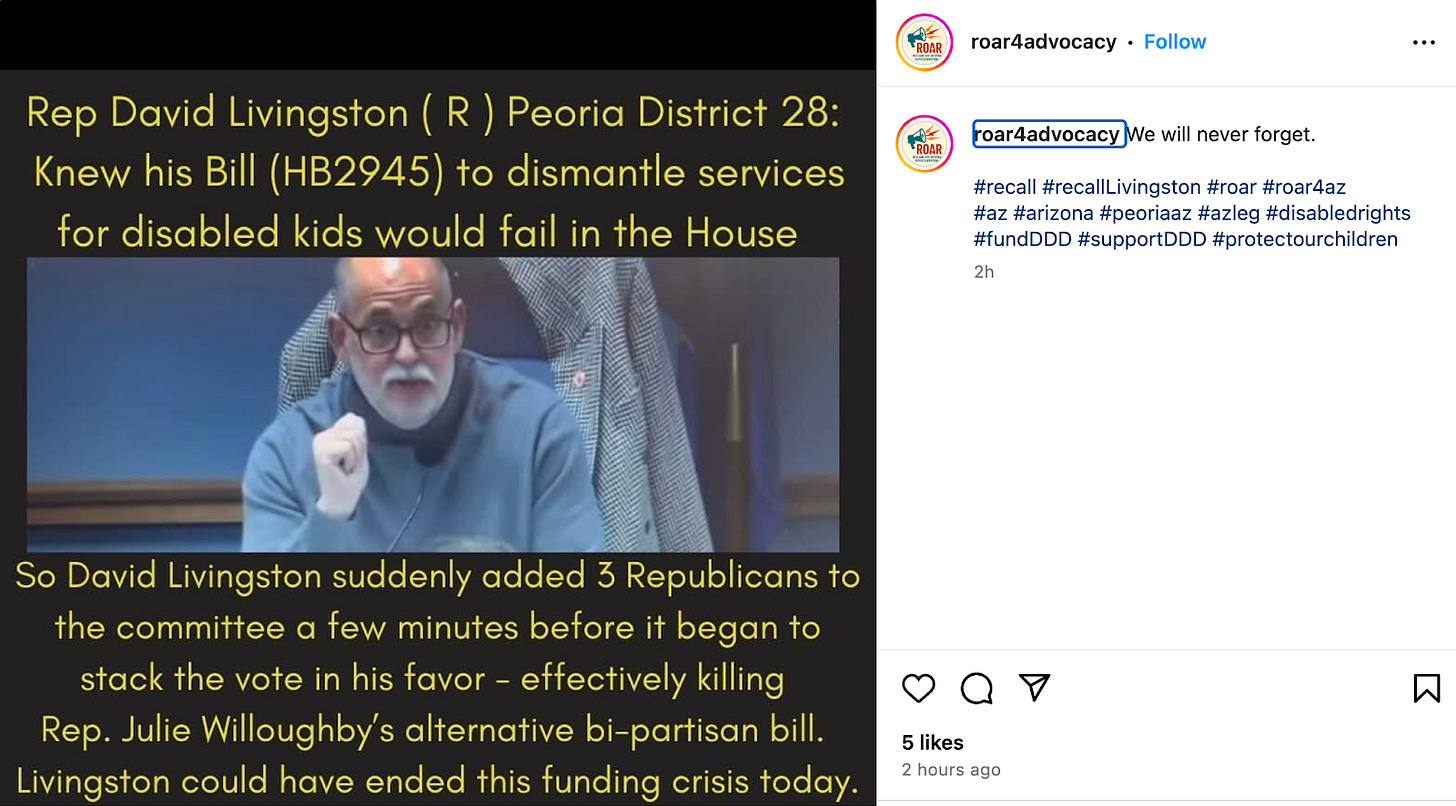

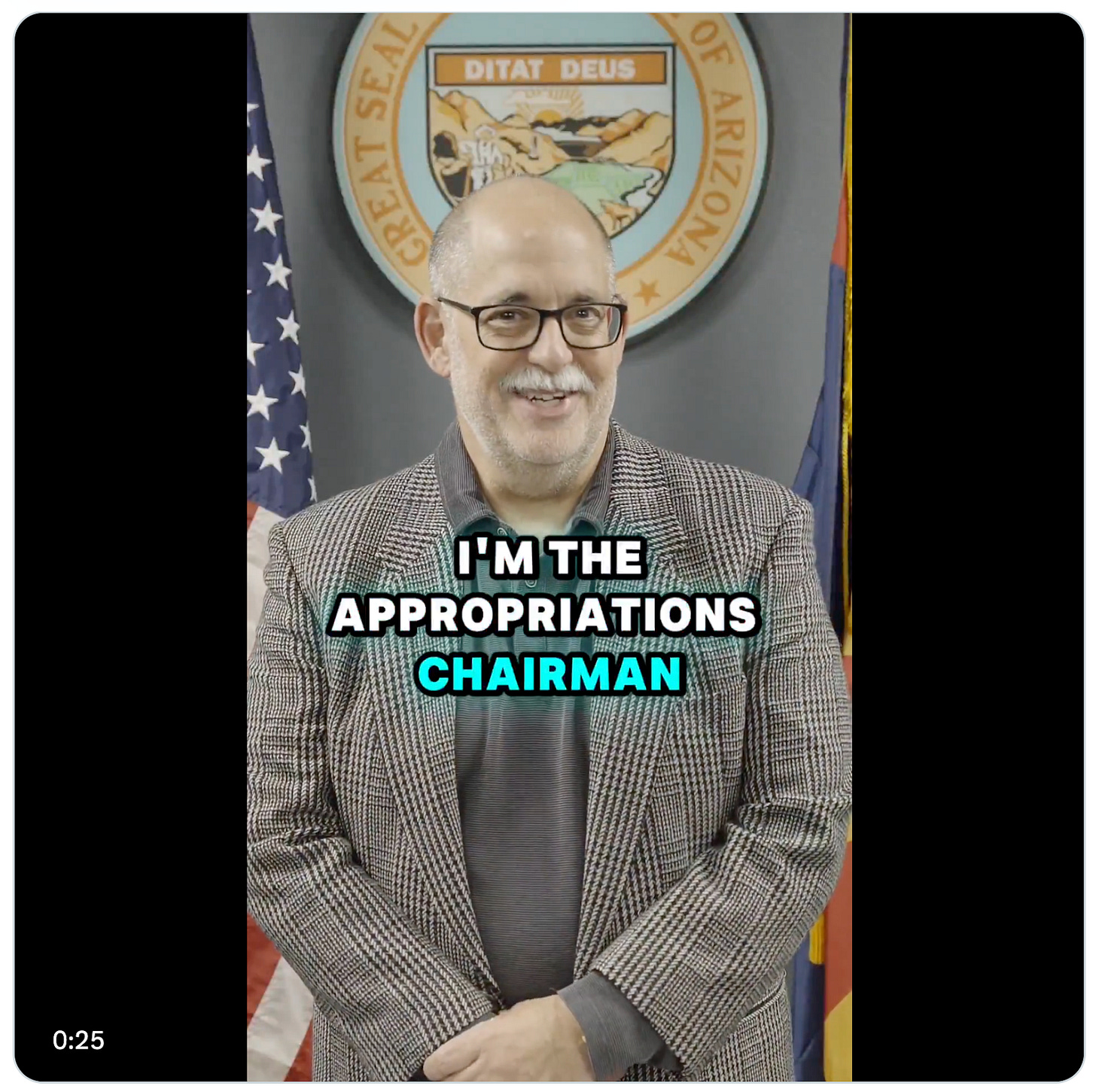
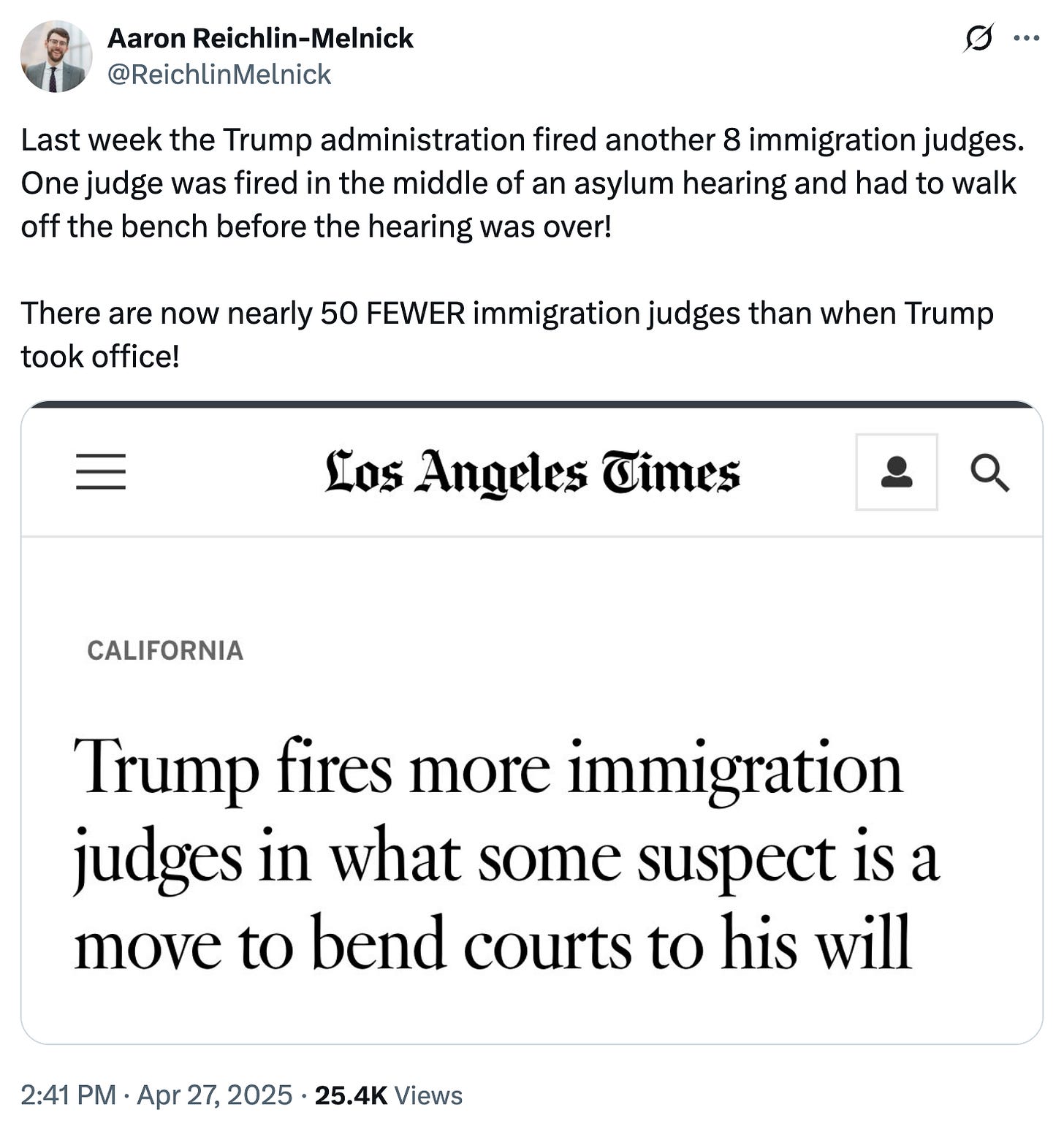

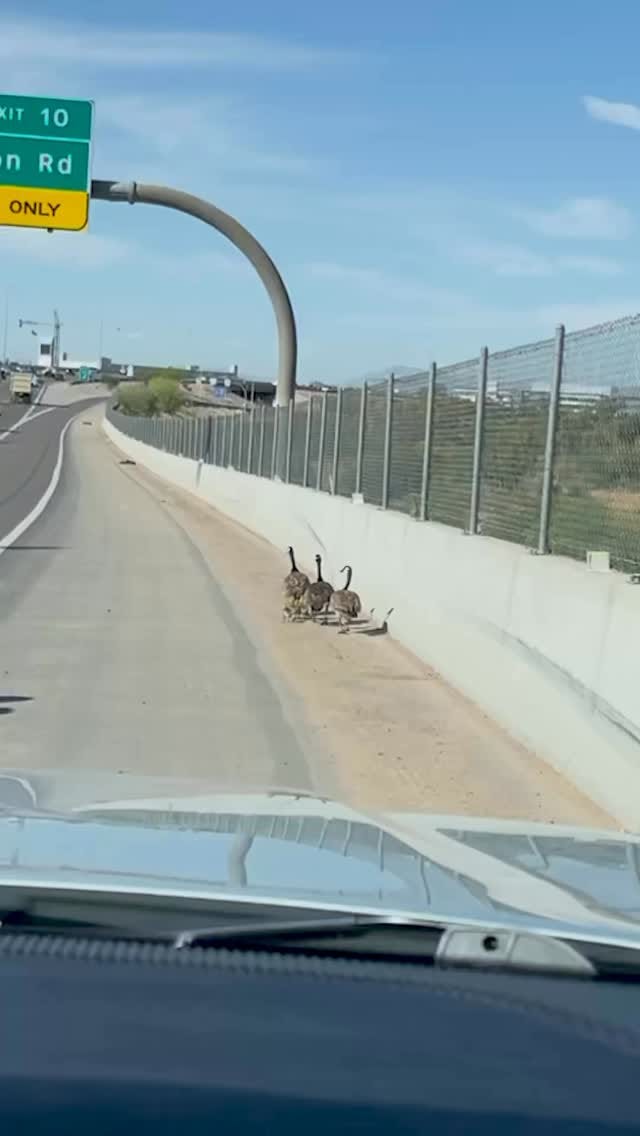






At one time we had both Jerry Lewis and Dean Martin in the legislature😎.
I think it is unfair to claim the recall campaign is associated with the Gov based only on the lawyer they hired.